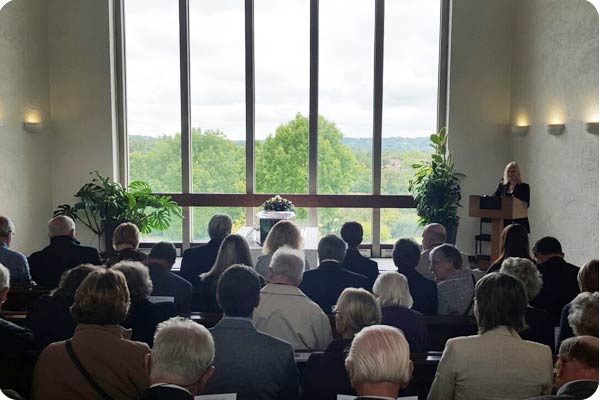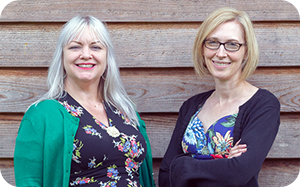Planning a funeral
Whether you’re here as a result of bereavement or because you’re considering planning your own funeral, you probably have many questions. This page answers questions relating to a death that has already occurred.
There are several things you must do in the first few days after someone dies. For a basic list of where to start when someone dies try the Government website. Otherwise the two main things to do are:
1) Get a medical certificate from a GP or hospital doctor. You’ll need this to register the death.
2) Register the death within 5 days. You’ll then get the documents you need for the funeral.
We can’t register a death for you, but we can help arrange an appointment at the registry office for you and even come with you if you would like us to. You’ll need to have decided beforehand whether a burial or cremation will be taking place so that the correct paperwork can be issued. We can help you think through all your options.
Appointing an Undertaker
At the same time you will need to consider the extent to which you need help to plan and carry out a funeral. For most people the practicalities and emotional strain of carrying out a funeral without support is too much, and so an undertaker is appointed.
Before you appoint someone though, think through what you do and don’t want to happen – do you want a package or do you want more say in what happens and how much you get involved? Does the funeral director you’re talking to have the flexibility to enable you to get involved in the ways you need to? Do you need the person who has died to be embalmed? (it’s not a legal requirement) Do you need to pay for extra cars? Have you sought a few quotes and are you clear on the prices you would be paying before committing?
For more things to consider do take a look at our FAQ page
Do you have to have a funeral?
When it comes to the question of funerals, there is no law that says you have to have one, but it does state that you must:
dispose of the body of the person who has died by burial, cremation or any other means (Births and Deaths Registration)

Usually the options are as follows
The majority of people in the UK opt for cremation. With urban cemetery spaces becoming more sparse, and our changing cultural attitudes the rate has grown from around 30% to over 70% of deaths in the last fifty years.
Depending on whether you choose cremation or burial, there are a few legal requirements which need to be adhered to. Other than that the procedures for arranging these funerals are quite straightforward.
Some people opt for the ceremony to take place on the same day at the same location. Others feel that restrictions such as the size or feel of the venue, or the tightly allocated time slots, can feel like a barrier to creating a truly unique funeral. If you have these concerns then it might be worth considering splitting the ceremony from the cremation. It is possible to hold a service in another location. You can then arrange the cremation later either as an attended, family only service, or as an unattended cremation.
We have connections already with a number of crematoria and cemeteries in the West Midlands but are happy to work with others that we may not already be familiar with.
Unattended cremation (often called direct cremation) essentially separates the cremation from the ceremony, allowing you more space and time to plan your memorial.
In this instance we would take the person who has died, at an appropriate time to the crematorium without family or friends in attendance, and we would return the ashes to the family as appropriate.
A ceremony may have taken place in advance at a different location or, as is often the case, the family will arrange for a ceremony at a later date in relation to the scattering or burial of the ashes.
This is an option that is becoming more popular around the country for two main reasons. The first being that more and more people are finding that the time restriction and environment of the crematorium does not fit with their needs and wishes. Secondly, with the rising cost of funerals an unattended cremation costs less.
Whatever your reason, an unattended cremation will allow you to focus on a ceremony that can take place at a time and location that is both meaningful and memorable. Just let us know if you would like us to help you plan and co-ordinate that ceremony.
 Arguably the most beautiful option, is a Natural or Woodland Burial.
Arguably the most beautiful option, is a Natural or Woodland Burial.
A natural burial ground might be an existing flower meadow, a site where woodland is being established or more mature parkland. More information and lists of burial grounds near you can be found on the Natural Death Centre’s website
A natural or woodland burial site can provide a peaceful location for a funeral ceremony and is a place where family and friends can feel at peace on subsequent visits as they sit or stroll amongst the trees, flowers and wildlife.
 Natural Burials don’t have the same time restrictions as the alternatives, and since they have never been considered a traditional type of funeral there is no expectation about how a ceremony should be conducted. Here you really do have the freedom to celebrate a life in your own way and in your own time.
Natural Burials don’t have the same time restrictions as the alternatives, and since they have never been considered a traditional type of funeral there is no expectation about how a ceremony should be conducted. Here you really do have the freedom to celebrate a life in your own way and in your own time.
The only point you may need to think about is that some sites are more ecologically concerned than others. This means that you would need to consider how you want the grave to be marked. Some grounds allow slate plaques; others only allow trees to be planted in commemoration.
At A Natural Undertaking we mostly work with Westall Park , Sun Rising and Temple Fields which are private burial grounds closest to Birmingham. For a more local option there are woodland burial grounds provided by the Local Council, in this case we typically we work with Primrose Meadow which is close to Kings Norton.
For Independent Advice



















